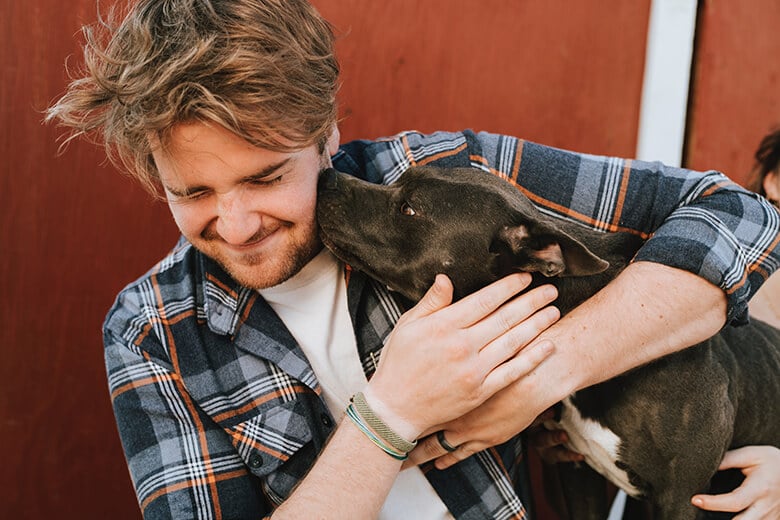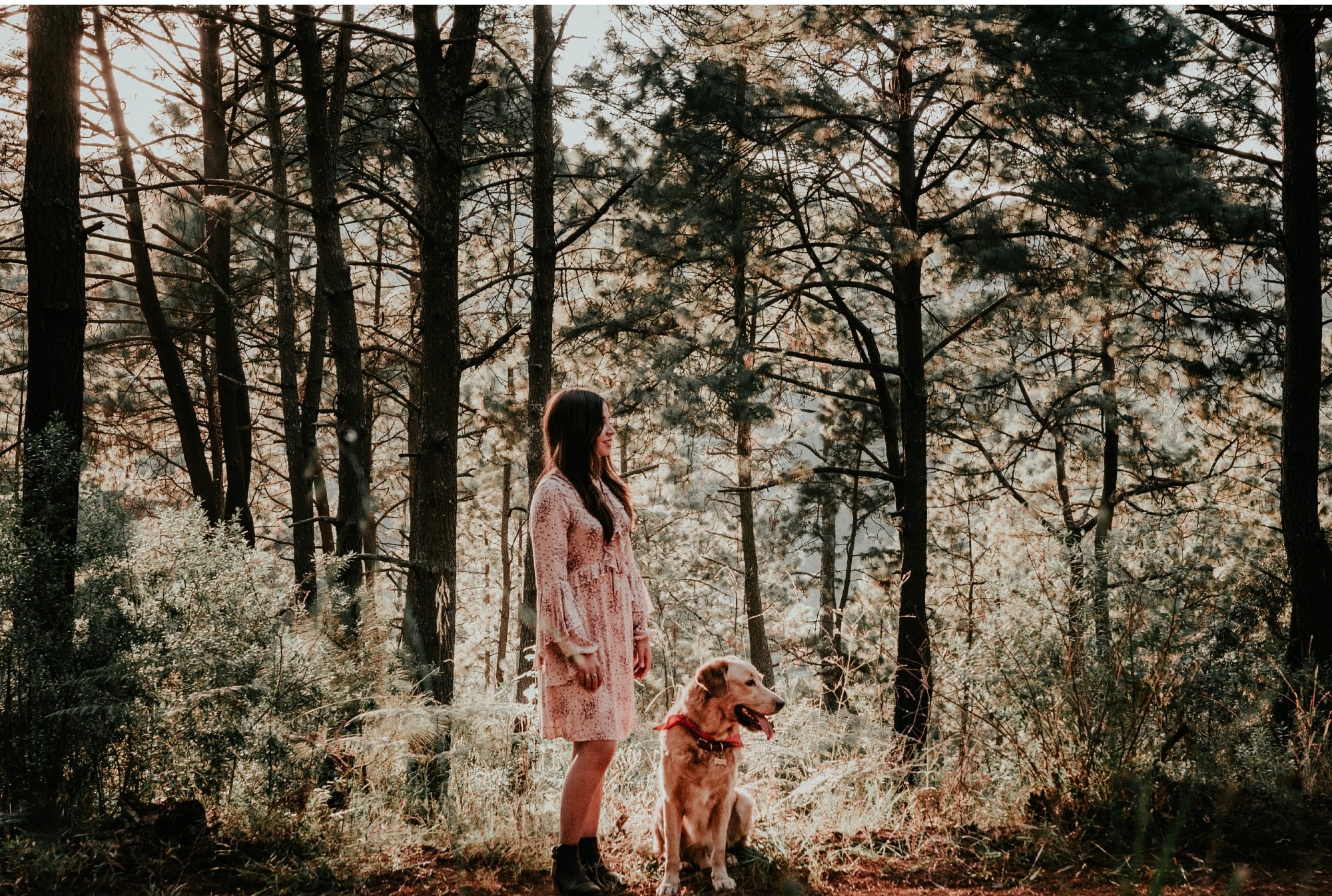Congratulations! You’ve decided to adopt a rescue dog. Not only will you be bringing the most wonderful animal on the planet Earth into your home, but you will also be saving a life. That’s a great feeling, and your new dog will repay you with gratitude and unconditional love for the rest of his or her life.
While so exciting and fulfilling, finding your four-legged best friend can be a bit overwhelming. Where do you even start? The more information you have about navigating the shelter system, the more likely you’ll find the dog of your dreams — and be able to take that pup home.
What Is Required to Adopt from a Shelter
First, it’s helpful to check out the available dogs on the shelter’s website; if you see a dog that interests you, call the shelter to let them know. Many shelters have a page that provides information about their adoption process, with some requiring a home visit.
Related: Nationwide Program Matches Senior Dogs with Senior Citizens
Next, review the requirements for adopting a dog from that particular shelter. Check the shelter’s website for specific information and be prepared to bring any documentation that’s required.
You may be asked some (or all) of the following questions:
- Do you have other pets?
- How many and what kind?
- What is your experience with dogs?
- Are your other pets spayed or neutered?
- Are your pets up-to-date on vaccinations?
- Have you ever taken an animal to a shelter?
- Who is your household will be responsible for the pet’s care?
- How many times a day do you plan to feed the dog?
- How often does your family plan to groom your new dog?
- What steps will your family take to keep your dog safe?
- How many hours will your dog be home alone? Where will he be left?
- How much quality time can you offer your dog and what type?
- How do you plan to train your dog?
- Are there any bad habits that you will not tolerate in a dog?
- Are you committed to your dog despite life changes, such as a new baby, moving, divorce?
- Do you rent or own?
- Do you have a yard?
- Does everyone in your household agree about adopting this dog?
- Is anyone in your household allergic to dogs?
- Do you have children?
- How many and what ages?
- What is your activity level?
- What is your experience with a dog that has behavioral problems?
You will need to provide documentation:
- One or two forms of ID.
- Proof of current address (such as a lease or a telephone, utility or cable bill)
- The name and contact information of your veterinarian.
- Be prepared to offer references with name, address, and phone number; usually, one or more references cannot be related to you.
- Proof that you have the knowledge and consent of your landlord.
Be prepared to pay a small fee:
- Some fees go by age.
- Some fees go by pedigree or mixed breed.
- The fees usually include spay/neuter, vaccinations and other medical exams.
- Some shelters or adoption events may have no fee.
- Check with the shelter before you go and come prepared
You will find all kinds of dogs in a shelter, from puppies to seniors, from mutts to pedigree pooches. If you are looking for a specific breed, search online.
Related: 10 Money-Saving Tips for Dog Owners
Find a Shelter or Rescue
There are shelters and rescue organizations throughout the country (though some areas have less than others).
These websites offer lists of shelters and rescues across the US:
- Petfinder: You can search by location and/or breed, age, size, gender, and dogs that are good with other dogs, cats, and kids.
- Pet Guardian Angels of America: This site offers a nationwide list of animal and rescue organizations that operation on a national scale.
- Adopt a Pet: You have access to more than 17,000 animal shelters & rescues, and you can search by breed, gender, age, size, location, and even color.
- No Kill Network: This site lists no-kill rescues and shelters nationwide.
- The Shelter Pet Project: You can search by distance away from your zip code.
What to Ask a Shelter or Rescue about a Dog
The more information you have on the dog you’re thinking of adopting, the more likely the match will be made in heaven. They may not have much information on the dog’s past, but try to get as complete a history as possible.
Blue Pearl Pet Hospitals and the AKC recommend asking these questions:
- Why is the dog in a shelter?
- Why did the owner surrender the dog?
- Was the dog found as a stray or a lost dog?
- Where was the dog found?
- What condition was the dog in when found?
- Did he come from another shelter?
- Has he been adopted before and returned?
- Has the shelter done a behavioral assessment?
- How is the dog with children?
- How is the dog with other dogs?
- How is the dog with cats?
- Has he been tested with other dogs, cats, and/or children?
- Does the dog have resource guarding issues with food and/or toys?
- Does the dog know how to walk on a leash or is training needed?
- Is there any medical care or medications needed?
- Are there any dietary restrictions (usually due to allergies or chronic disease)?
- Will the shelter take the dog back if it doesn’t work out?
What Should You Look for in a Dog from a Shelter?
It’s always a good idea to spend some time with the dog in a quiet area away from the kennels. If the dog is immediately friendly, that’s a great sign. But if the dog is aloof and unresponsive, that doesn’t necessarily mean you shouldn’t consider the dog. A dog’s behavior and attitude in a shelter is not the usual behavior of most dogs. Dog are frightened, stressed, and anxious in the shelter environment. They may be mourning the loss of a previous family. They may even be sick and in pain.
If you have another dog, it’s important to see if they get along. Many shelters provide an area for the dogs to meet. Watch their interaction carefully. If the dogs sniff each other and appear interested, that’s good. If they start to play together, that’s also good, but watch for any overt signs of dominance from either dog as that can spell trouble. If the dogs go for each other’s throats, that’s a clear red flag. Just like people, dogs can dislike another dog on sight. Don’t bring home a dog that tries to kill your existing dog, or one that your existing dog attacks.
Don’t overlook the dogs that hide in the back or their kennel or appear emotionally shut down; sometimes, it is just the stress of being in this environment that causes this behavior. Regardless, dogs will be the most grateful to you for saving their life.
Some people consider the process of adopting too hard to cope with, remember: the shelter is doing everything they can to prevent the dog you adopt from ending up back in the same place (or worse). If you’re prepared before you go to the shelter, the adoption process will be much easier.



















